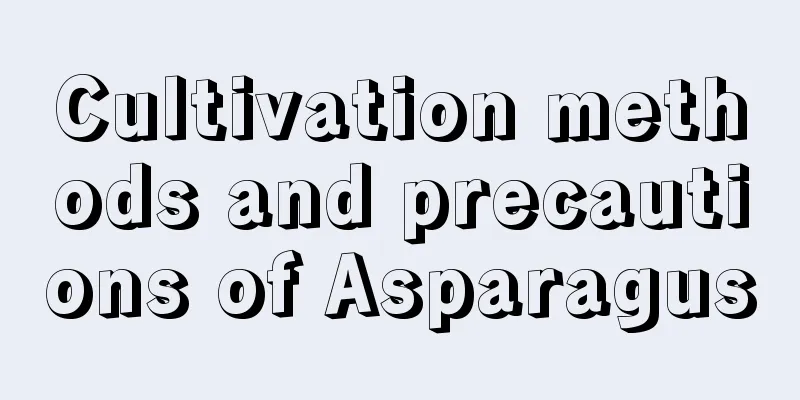A complete guide to the cultivation methods and precautions of Araucaria

1. Maintenance methods1. Temperature: Araucaria prefers slightly higher temperatures, between 25 and 30 degrees, which is most suitable. However, too hot a season is not conducive to its growth. Therefore, when the temperature is above thirty-five, try to adjust it. In addition, it is a very cold-resistant plant and basically does not require any adjustment in winter. 2. Light: Araucaria is a light-loving species, but it needs to be shielded from too strong light, as excessive exposure to the sun will damage it. Therefore, it needs to be shaded in summer or moved to a place without strong light. Try to keep the lighting conditions better at other times, especially in winter. 3. Watering: Araucaria requires more water during the growing season. Generally speaking, you need to water the plants every two or three days. However, in winter, you need to reduce the frequency of watering and keep the substrate drier. It should be noted that water should not accumulate regardless of the season. 4. Fertilization: The demand is not too much. It can be applied during the growth period, once or twice a month. You can use compound fertilizer or calcium fertilizer. 2. Breeding techniques1. Reproduction: It can be propagated by sowing. Since the seed coat will have an adverse effect on the germination rate, it is best to remove the seed coat before sowing. Sandy soil was used as the substrate. Moreover, it is best to disinfect them first, because seedlings propagated in this way are susceptible to diseases and pests. 2. Repotting: If it is a newly planted seedling, it is best to repot it once a year in the spring. If it is an old plant over five years old, it can be replaced every two or three years. When repotting, you can prepare new soil using leaf mold, garden soil, vermiculite, etc. When repotting seedlings, the flower pots can generally be replaced as well. 3. Problem diagnosis and treatment1. Disease: If "anthracnose" occurs, it can be treated with carbendazim. There may also be "leaf blight", which can be treated with polysulfide glue or chlorothalonil. 2. Pests: Mainly scale insects. Generally speaking, omethoate solution is the most effective in their prevention and control. IV. Other issues1. Toxicity: It is non-toxic and can purify the air. 2. Can it be grown at home? Araucaria is also an ornamental plant and it is more appropriate to grow it at home. However, it may take up more space and require a larger flower pot. |
<<: The cultivation methods and precautions of magnolia
>>: Bird's nest fern cultivation methods and precautions
Recommend
Where can African jasmine be placed?
The role of African jasmine African jasmine can c...
Do peppers need to be watered every day?
Do you water peppers every day? Peppers do not ne...
Growing flowers is like cutting leeks. After cutting them, new sprouts will appear. The leaves are as big as a palm and can climb up the wall!
Cut the spider plant with a knife and new leaves ...
How to take care of the newly bought golden banyan
1. Lighting Ficus microcarpa likes light, especia...
How to dry Kapok and how to soak it in water to drink
1. How to dry kapok flowers If you want to dry ka...
How to germinate dahlia bulbs
1. Germination time It is recommended to germinat...
Common varieties of water lilies
White Water Lily Originally produced in the Nile ...
The legend of hydrangea
The legend of hydrangea According to legend, once...
How are mushrooms grown? How to grow mushrooms? Come in and find out
How are mushrooms grown? Mushrooms are plants wit...
What to do if Osmanthus fragrans does not bloom
Insufficient light When growing Osmanthus fragran...
Can cherries be grown in Jiangxi?
Can cherries be grown in Jiangxi? Jiangxi is suit...
How often should spruce be watered?
How often should spruce be watered? There is no f...
The difference between Sedum sedum and Sedum notoginseng
Overall distinction The first difference is in ap...
When is the best time to plant radishes?
Radish is a common root vegetable belonging to th...
What does the melon-melon phenomenon mean (detailed explanation of the causes and prevention measures of melon-melon-melon-melon)
In the spring of April and May, I planted some lo...









